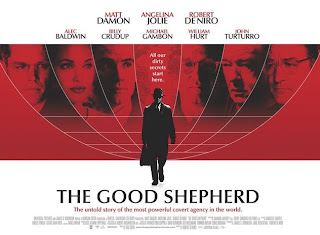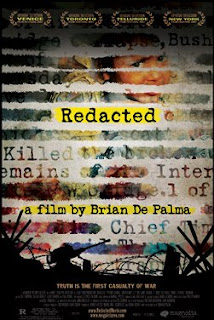 "Before the Rain" *** (out of ****)
"Before the Rain" *** (out of ****)"Before the Rain" takes place during the early 1990s in a country once known as "Yugoslavia". We are amid the Bosnian war and Milosevic's "ethnic cleansing".
The film tells three separate stories, each of which will follow a common thread. The first one is called "Words". Macedonia is the setting as we follow a monk, who has taken a vow of silence. His church has given shelter to refugees, mostly Muslim Bosnians. But this time an Albanian girl, Zamira (Labina Mitevska) is missing. She has killed a Catholic Macedonian. Unknown to the monk, the girl has been hiding out in his room. When a gang, headed by the decease's brother, Mitre (Ljupco Bresliski) comes looking for the girl the monk's faith is challenged.
Our next story takes place in London. It is called "Faces". It follows a Yugoslavian photographer, Aleksander (Rade Serbedzija), who has been having an affair with a married woman, Anne (Katrin Cartlidge). She is pregnant with her husband's child. Aleksander meanwhile has decided he wants to return to Yugoslavia, Anne does not. It is not safe in Yugoslavia she tells him. They are better off in London, away from violence. Or so she thinks. While seeing her husband, to discuss her pregnancy, she learns in times of war, no place is safe.
We conclude with the final chapter, "Pictures". Here we follow Aleksander on his journey back home as he witnesses first hand the destruction taking place in his homeland.
I said there is a common thread to these stories and there is. Violence leads to more violence. And when violence is near, there is no way to escape it, whether you are a photographer in London or a monk in a remote village.
The film was directed by Milcho Manchevski. It was his feature film debut. Manchevski is a Macedonian, who returned home, after living in the U.S., to show the struggles of his country. I remember quite clearly the conflict in the former Yugoslavia. I also remember the cinema coming from the Balkan region at the time. Films ranging from Emir Kusturica's masterpiece "Underground" to Goran Paskaljevic's "Cabaret Balkan" and Lucian Pintilie's "An Unforgettable Summer". All three films condemned what was going on at the time. The stupidity of the idea of hating "the other".
But, for as good as "Before the Rain" is it didn't captivate me the way other films dealing with the subject had. There is clearly a passion to what Manchevski is doing but it doesn't always translate well on-screen. Sometimes he seems too subtle and other times too forceful. The two are never balanced.
When Aleksander returns home and sees the state of his country we understand the social commentary. Or the violent conclusion to "Faces" the messages are clear. As is the metaphor of rain and an impending storm. The symbol is too heavy handed. But sometimes the message seems open for interpretation. We aren't quite sure what Manchevski is trying to tell us.
It is however difficult to deny the impact of certain moments. Credit must be given to Manchevski for his bravery to shot a film in a war-torn country. And for his passion to tell his country's story. "Before the Rain" speaks to the power of cinema. Cinema is a powerful tool which can show us and teach us about different lands and cultures. It can make social and political commentaries and expose evils to the rest of the world. If that sounds too pretentious to you, tell that to people like Manchevski who risk their lives for cinema. The very least we can do is listen to what they have to say.
"Before the Rain" was nominated for the "best foreign language" Oscar and won the "Golden Lion" at the Venice Film Festival.







 "Death At A Funeral"
"Death At A Funeral"










